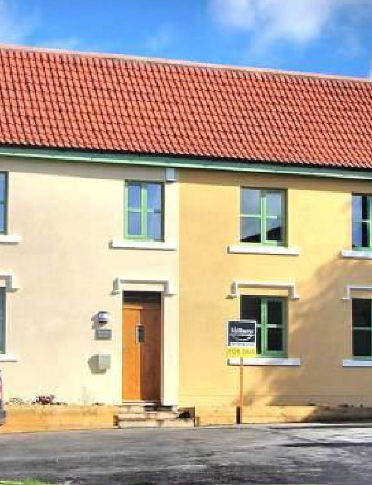BEAMA commend final approval of the European Energy Performance In Buildings Directive and call for UK Government to optimise on the opportunities this presents for the long term renovation of UK building stocks.
BEAMA are very pleased to see final approval now agreed on the EPBD by the European Council as this Directive contains important elements for our sector and improvements in energy efficiency, indoor air quality and renovation strategies for the UK building stock. This is a huge step forward in the evolution of energy performance in buildings and the rollout of new technologies, including EV charging. The European Commission, Parliament and Council should be commended for this first of 8 legislative proposals to be finalised from the Clean Energy Package. BEAMA see significant synergy with the final EPBD and the UK Government’s overall objectives on residential energy management with clear links to the recently published Clean Growth Strategy and Smart Systems and Flexibility Plan.
BEAMA and our members are now focused on ensuring the implementation of the EPBD is overseen in the UK. Considering the likely 2 year transition period for the UK exit from the European Union, we expect the Directive to be implemented following standard practice for European legislation, and view this as a positive step towards improvements in the UK building stock - a subject at the forefront of the UK’s political agenda today.
There are some specific elements of the EPBD that BEAMA and our EU trade bodies have continually supported throughout the negotiation process, and we would like to start a dialogue with UK government on how these will be overseen in the UK and integrated with our existing Building Regulations. These include:
Room temperature controls: an Energy saving opportunity for the UK
Article 8.1 in the EPBD will require new buildings to be equipped with self-regulating devices for individual room temperature control where technically and economically feasible. In the case of existing buildings, they will be required to install them when heat generators are replaced, and it is viable.
The recently published eu.bac white paper[1] clearly shows the scale of potential energy savings across the EU from the application of readily available and highly cost-effective technologies such as Thermostatic Radiator Valves (TRVs.). We see the Article 8 requirement as consistent with the UKs policy objectives for improving energy efficiency in buildings and in line with the current BEIS ‘Future Framework for heat in buildings’ proposal and call for evidence.
The Clean Growth Plan clearly states that “there is a strong case for requiring TRVs when a boiler is replaced in an existing system”, although the opportunity to include this as a requirement was missed in the recent Boiler+ initiative.
Referring back to the eu.bac white paper, the scale of opportunity identified specifically for the UK is shown below:
- 9 million homes only have manual radiator valves (MRVs)
- This equates to 62 million radiators that could be upgraded from MRVs to TRVs
- A further 43 million radiators with old TRVs could be economically upgraded to newer models.
- The annual energy saving would be 23 TWh, preventing 4 million tonnes of CO2 being emitted into the atmosphere each year
- UK householders would save a total of £1.4 billion from their energy bills
- The return on investment would be £6.40 for every £1 spent with an average payback of two years
At the moment there is a policy failure in the UK as TRVs are too often not installed at the time of a boiler replacement, despite the building regulations saying it is ‘good practice’ to do so and it being cheaper to do so while the system is drained down. This is an opportunity to ensure that all systems are made more efficient, underpinned by a legal requirement in our UK Building Regulations, which will result in householders having a lower lifetime cost for their heating system as well as greater comfort.
Indoor Air Quality
The final EPBD clearly acknowledges the importance of indoor air quality and outlines measures to ensure this is factored into building renovations and upgrades and compliance with existing legislative acts such as Directives 2009/148/EC1 and (EU) 2016/22842 of the European Parliament and of the Council.
BEAMA, working with the All Party Parliamentary Group (APPG) on Healthy Homes and Buildings, has built up a wealth of knowledge and expertise on how to improve indoor air quality and how this can be aligned with energy policy. We would welcome government to initiate discussions with industry on how best to deliver on these requirements of the EPBD.
The APPG on Healthy Homes and Buildings was established in May 2016 with support from BEAMA. The APPG published a Green Paper for consultation last year, and will be pushing the UK to adopt policies that will deliver, in practice, the healthy homes and buildings that we need. The EPBD represents a major first step in recognizing the crucial importance of indoor air quality in buildings and the key role that effective ventilation in buildings will play to deliver this.
The APPG has supported the following recommendations and we urge that MHCLG pays due consideration to Indoor Air Quality by supporting a number of the ambitions in the revised EPBD:
- the setting of mandatory inspections of technical building systems, including ventilation systems, which is an effective way to reduce the energy needs from buildings and to ensure an appropriate level of indoor air quality
- a more efficient and effective framework for Technical Building Systems, referring to both energy efficiency and indoor air quality
- the calculation of energy needs to take into account the necessity to ensure minimum health, indoor comfort and air quality levels
A ‘Smart Readiness Indicator for Buildings’
This is a key part of the EPBD and BEAMA hope member states will support its introduction. The scope of the SRI is still to be developed and BEAMA are engaging with the work undertaken by the consultants to develop this.
At its simplest form BEAMA foresee the SRI in helping to enable demand side flexibility through the installation of fixed storage assets in buildings. This could include Home Energy Management Systems (HEMS), as this is a key element allowing a whole systems approach to load management at the building level. The details and scope of the SRI is still to be discussed in the stakeholder forum, but we hope the UK will ensure the indicator forms an important element of our building regulations going forward. The UK is at the leading edge of market developments for HEMS, storage and other related smart control technologies, and therefore the SRI, if delivered correctly, could represent a huge opportunity for domestic energy management and the market development of supply chains in this area.
BEAMA have developed some recent proposals for the SRI methodology and we would invite MHCLG to engage with us in how this could work for the UK market. There is certainly opportunity for the UK to lead on this and align with the current UK government recommendations for the deployment of smart appliances, metering, micro-generation and storage.
Renovation Strategies
Article 2 of the EPBD sets out the requirement for member states to implement a long-term renovation strategy for residential and non-residential buildings. We foresee a good opportunity in setting out this strategy to align with other government energy policy (storage, renewables, heat, ECO etc). We regard the formation of long term renovation strategies as timely, recognising advancements in our understanding of the UK housing stock, partly as a result of the recent Grenfell tragedy and Hackett report. We also see opportunities to look at advancements in the construction sector, including innovations in building techniques such as modular design and off-site construction which is especially beneficial when looking at the introduction of new heating systems into the new build market.
BEAMA support the EPBDs prompt implementation in the UK, as a progressive package of measures for our UK building regulations. This presents opportunities for the UK to be seen as leading on the advancements in building safety, efficiency and standards.
For more information on BEAMAs work on this important policy agenda please contact [email protected]
BEAMA International Policy Manager

[1] Room temperature controls: How the EU is missing an opportunity for substantial energy savings (2017) http://www.eubac.org/news-press/eu.bac-press-release-poor-heating-controls-are-failing-european-consumers.html





